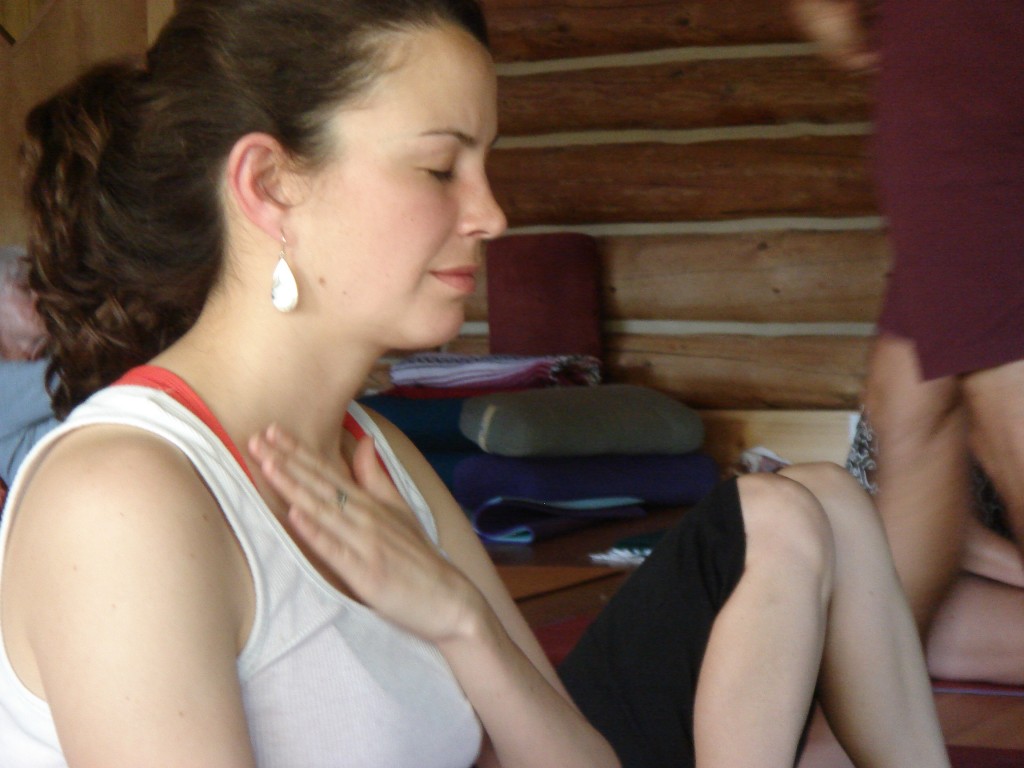by CONNIE ARONSON
Buddhists believe you become enlightened when you haven’t a negative thought. Scientists now know that beyond doubt potent physiological states, like anger, envy or blame, affect our health as much as could high triglycerides. Good health is more than the physical habits of our daily lives. How we experience our lives matters. Factors such as isolation, depression, anger, jealousy and hostility, not only rob our true nature of happiness, but can contribute to heart disease. Thoughts can become biology. In her book “The Heart Speaks,” Dr. Mimi Guarneri tells how suppressed emotions, or ones we are unconscious of, or just simmer on the back burner indefinitely, eventually manifest as physical symptoms. She illustrates how emotionally stressful events, particularly anger, precede and may even trigger the onset of a heart attack.The story goes: a man is driving on a highway listening to the radio, when suddenly there is an announcement: “On the 401, a man is driving in the wrong direction. Use extreme caution.” He looks around and says: “Only ONE person is driving in the wrong direction? There are hundreds of them going in the wrong direction!” Isn’t it so easy to point a finger, get angry, or blame the other guy? Nawang Gehlek Rimpoche, the grand nephew of the 13th Dalai Lama, in his book, “Good Life Good Death,” sites the dichotomy: we are all basically beautiful human beings, but our particular behavior and attitudes can get in the way of our happiness.
The heart has an electromagnetic current 60 times higher in amplitude than the field of the brain. It also emits an energy field five thousand times stronger than the brain’s. What, Guarneri asks, if it’s not the brain telling the heart what to feel, but the heart informing the rest of the body? What if, she asks, changing the mind actually involves changing the heart? How can we stop pointing to the other guy, and be here in the present, to allow more happiness in our lives?
Radiate love and appreciation
Anger-provoking situations play havoc on heart rate responses and blood pressure, as we all know. Levels of a protein, IL-6, a maker of inflammation that may cause arterial thickening, and the stress hormones cortisol and epinephrine also kick in to push cholesterol and blood sugar levels higher. The heart and nervous system rhythms’ become chaotic, adversely affecting the whole body. Positive feelings, such as love and appreciation produce heart-rhythm coherence, and increased harmony and health, Guarneri writes. Since the heart is the most powerful oscillator in the body, it has the capacity to synchronize other organs in unison. Heart-rate patterns shift to orderly ones when a person enters a loving, appreciative state, she writes. Forgiveness, optimism and gratitude, topics she says would have been dismissed as irrelevant in medical school, are as much a part of heart disease equation as blood levels. A shift in our thinking, filled with gratitude, can help us connect to something larger than our individual experiences, whether to others, nature or a higher power. May this New Year be filled with happiness and big love.
Connie Aronson is an ACSM Health & Fitness Specialist and an IDEA Elite Certified personal trainer. She is located at the YMCA and High Altitude Fitness in Ketchum, Idaho.

